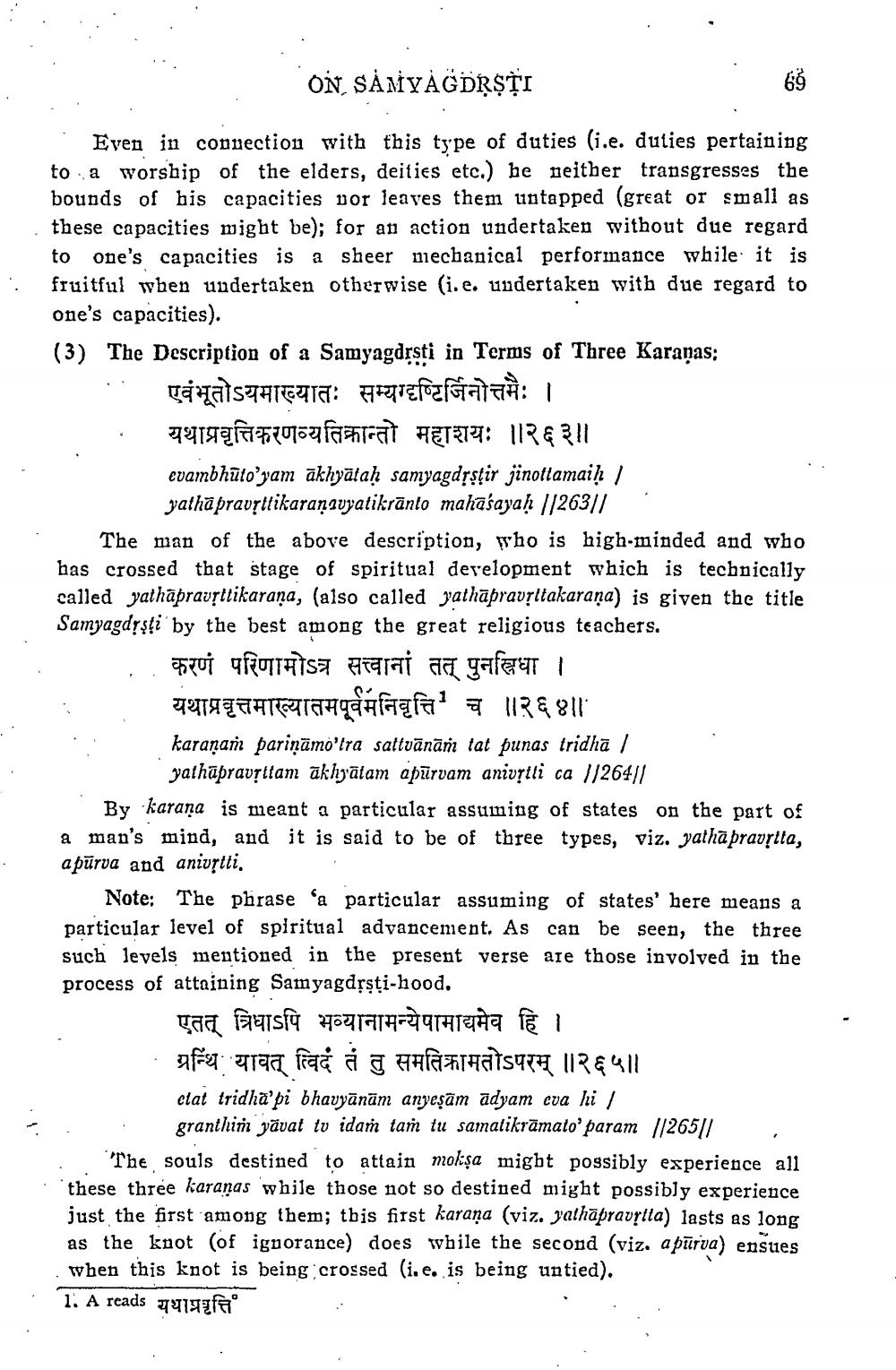________________
ON SÅNİVÀGDRSTI
65
. Even in connection with this type of duties (i.e. duties pertaining to a worship of the elders, deities etc.) he neither transgresses the bounds of his capacities por leaves them untapped (great or small as these capacities might be); for an action undertaken without due regard to one's capacities is a sheer mechanical performance while it is fruitful when undertaken otherwise (i.e. undertaken with due regard to one's capacities). (3) The Description of a Samyagdrsti in Terms of Three Karanas:
एवंभूतोऽयमाख्यातः सम्यग्दृष्टिर्जिनोत्तमैः । यथाप्रवृत्तिकरणव्यतिक्रान्तो महाशयः ॥२६३॥ evambhūto'yam ākhyātaḥ samyagdssţir jinottamaiḥ /
yatha pravrttikaranavyatikrānto mahasayah |/263|| The man of the above description, who is high-minded and who has crossed that stage of spiritual development which is technically called pathāpravstlikaraņa, (also called pathāpravsltakarana) is given the title Samyagdršļi" by the best among the great religious teachers.
करणं परिणामोऽत्र सत्त्वानां तत् पुनस्त्रिधा । यथाप्रवृत्तमाख्यातमपूर्वमनिवृत्ति' च ॥२६४॥ karanaṁ pariņāmo'tra sattvānāń tat punas tridhā /
gathābrauritam ākhyātam apūrvam anivítli ca 1/264// By karana is meant a particular assuming of states on the part of a man's mind, and it is said to be of three types, viz. yathapravrita, a pūrva and anivștti.
Note: The phrase "a particular assuming of states' here means a particular level of spiritual advancement. As can be seen, the three such levels mentioned in the present verse are those involved in the process of attaining Samyagdșsți-hood.
एतत् त्रिधाऽपि भव्यानामन्येपामाद्यमेव हि । • ग्रन्थि यावत् त्विदं तं तु समतिक्रामतोऽपरम् ।।२६५॥
clat tridha'pi bhavyānām anyeşām adyam eva hi /
granthini yavat tv idam tam tu samatikrāmato' param 11265| : The souls destined to attain mokṣa might possibly experience all these three karanas while those not so destined might possibly experience just the first among them; tbis first karana (viz. yalhāpravrtta) lasts as long as the knot (of ignorance) does while the second (viz, a pūrva) ensues when this knot is being crossed (i.e. is being untied). 1. A reads यथाप्रवृत्ति




